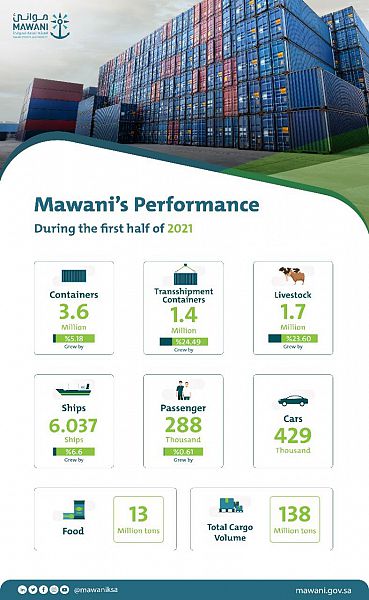
RIYADH: As 2021 came to an end, Tadawul’s TASI index – which tracks the performance of the biggest companies listed in Saudi Arabia – capped the year’s gains momentum at 11,282 points, up 30 percent from a year earlier – the highest annual leap in 14 years.
Pushed by stronger oil prices, a series of initial public offerings, 2022 budget surplus forecast, promising financial results, and overall recovery from 2020’s pandemic crisis, Saudi Arabia’s stock market saw unprecedented gains throughout most of the year until the omicron variant hit.
The rise of omicron in late November led to a surge in coronavirus cases in the Kingdom, hence reigniting investors’ fears, as they witnessed a mixed trend in regional and global stock markets.
On the final trading day of 2021, the gains recorded stood at 0.73 percent for the main index TASI and 0.09 percent for the parallel market Nomu which closed at 25,976 points.
Saudi Research and Media Group – known as SRMG – and ACWA Power exited the year with all-time highs, reaching SR196 ($52) and SR84, respectively. Shares of the former soared 150 percent from a year earlier.
Outperforming all Saudi stocks in terms of growth, Sadr Logistics finished the year 184 percent higher despite declining most in the prior session.
The fast rebound of the Kingdom’s stocks illustrated resilience against the recently re-imposed COVID-19 restrictions that sent the market down on Dec. 29, 2021.
In line with Saudi, most Middle Eastern bourses stood tall in the face of omicron and ended 2021 on a strong note. The Gulf Cooperation Council was led by Abu Dhabi’s index ADI that leaped nearly 68 percent year-on-year.
The UAE’s index DFMGI and Kuwait’s BKP recorded yearly gains in the range of 26 to 28 percent, followed by Bahrain’s BAX. Next, bourses of Oman, Qatar, and Egypt all concluded the year with 10 to 13 percent annual increases.
That said, Middle Eastern indexes saw a mixed performance in the final session ahead of the new year. Along with TASI, Dubai’s DFMGI topped the gains with a 0.7-percent-increase. Next were indexes of Abu Dhabi, Egypt, and Bahrain – up 0.5, 0.4, and 0.2 percent, respectively.
The Qatari index QSI fell 0.5 percent, while bourses of Oman and Kuwait saw marginal losses of 0.2 percent each.
As announced in early December 2021, the UAE bourse will run trading sessions from 10 a.m. to 3 p.m. Gulf Standard Time, Monday to Friday, starting tomorrow, Jan. 3.
In energy trading, Brent crude oil lost 1.75 cents to reach $77.8 a barrel while US WTI crude was down 1.78 cents to $75.2 per barrel on Dec. 31, 2021, having risen over 50 percent yearly.
Stock news for Jan. 2
SEDCO Capital REIT fund’s facility limit granted by Al Rajhi Bank has been extended to SR1.05 billion.
Knowledge Economic City has obtained a bank facility worth SR782 million from the Tourism Development Fund and Riyad Bank to finance 79 percent of its Knowledge Economic City Hub project.
Allied Cooperative Insurance Group, ACIG’s rights issue subscription will start on Jan. 3 and end on Jan. 13, while the trading period will end on Jan. 10. This comes as the group aims to raise capital to SR291 million.
The Co. for Cooperative Insurance, or Tawuniya, has received an order to provide 1-year health insurance services for employees of Tahakom Investments Co. and its subsidiaries. The company said in a bourse filing that the contract is expected to have a positive impact on 2022 revenue.
Al Rajhi Co. for Cooperative Insurance has received the Council of Cooperative Health Insurance’s approval to renew its yearly CCHI qualification starting Jan. 3.












